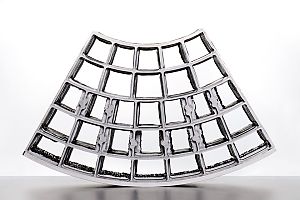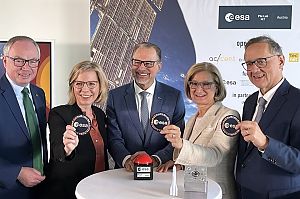ESA opens ideas factory to boost space innovation in Austria

Work at the centre will focus on accelerating the development of manufacturing for space, including the rapid prototyping of new materials, propulsion systems and making spacecraft and satellites.
Austrian companies will be able to join the Austrian 'Phi-Lab', along with European partners that can demonstrate that they are bringing value to Austria, as well as universities, institutes and research centres.
The lab will be managed by accent, which is a high-tech incubator for Lower Austria, in collaboration with Brimatech, a Vienna-based market research and consulting company, and tecnet-tt, a technology transfer organisation. They will be joined by consultants Enspace and Vienna Airport, which is providing office space.
ESA will work closely with Phi-Lab Austria to establish the operations of the centre, to select the first projects and to link those projects with relevant ESA expertise. The call for ideas will open soon and the selection of the first successful applications for seed funding will take place in June.
Other ESA-backed 'Phi-Labs' are expected to open soon across Europe, to foster the exchange of ideas, resources, and knowledge to develop sustainable commercial concepts through rapid iterative research.

The labs will complement ESA's networks of business incubation centres and technology brokers which support companies along their commercialisation journey from initial ideas to customer acquisition.
There is one such centre in Austria spread over three locations – Graz, Lower Austria and Salzburg – which currently hosts 17 small companies.
A further 48 alumni have graduated from the network since it was established in 2016. There is also a Vienna-based ESA technology broker.
The efforts form part of ESA's ScaleUp programme, which provides comprehensive commercialisation support to transform great ideas into reality through innovation and investment.
Josef Aschbacher, Director General of ESA, said: "During my time as Director of Earth observation at ESA, I introduced the Phi-Lab concept to commercialise space by accelerating the use of Earth observation data through transformational and disruptive innovations.
With the opening of Phi-Lab Austria, we will expand this concept to all areas of space, bringing together key players with different areas of expertise, backgrounds and communities. ESA wishes this new space innovation centre in Austria lots of success, drive and creative inspiration."
